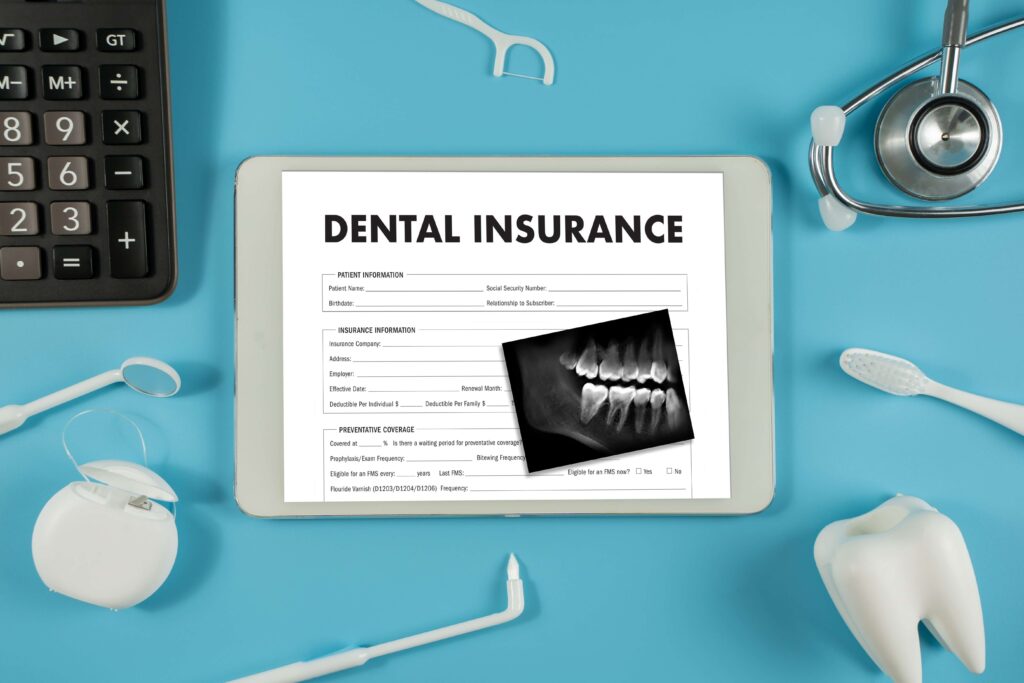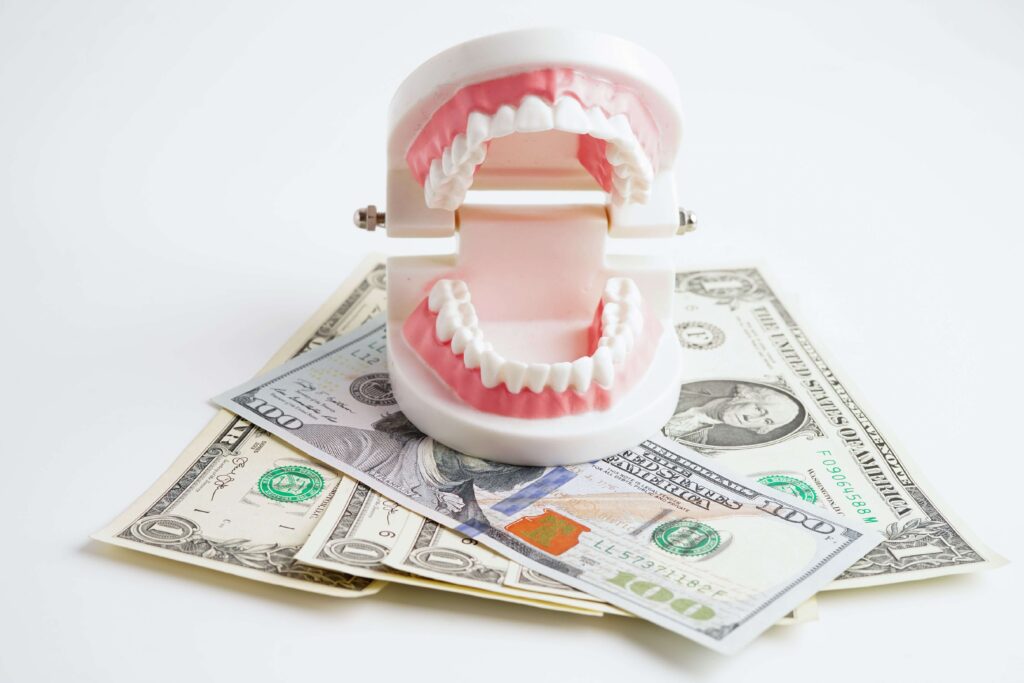Doc, I have Dental Insurance. So What?
Many of our patients often tell us they have dental insurance. But are patients aware of what their dental insurance actually covers?
A recent concerning trend we have found is that most of our patients have minimal understanding of what their dental benefit plans actually cover. Read up on our blog regarding dental insurance and how best it can work for you and your dental care.
Let’s face it, with costs around us drastically increasing in the last several years, dental care is not an exception. Whether it is your grocery bill, the cost of your electricity and heating bill, or even paying your bill at a restaurant with automatically suggested tips, the cost of all goods and services is increasing. That most certainly is going to include your medical and dental care.
Dentistry will always be a service profession where the doctor takes time to listen to a patient’s wants and needs. This includes listening to and respecting one’s concerns, like dental anxiety, a previous bad experience in the chair, claustrophobia, or even a bad gag reflex one might have. Being in a partnership with your dentist is a win-win situation, and it is important for one to find a dentist with whom they feel comfortable. A dentist works in mouths that are connected to a living, thinking, and feeling human being. Some patients are most certainly easy to work on, but many are terrified and would rather hear nails on a chalkboard than sit in the dental chair.
Unfortunately, dentistry has started to become like a retail commodity these days, much like a fast food restaurant where food is received quickly and cheaply. When working in the ever-so-sensitive mouth, quick and cheap just doesn’t work. When dentistry becomes quick and cheap, without the human touch our service demands, dental fear and disappointment will only become more rampant.
At the end of the day, we have always felt that there is a connection between the oral cavity and your systemic health- they work hand in hand, and your systemic health will say a lot about how your mouth is.

Making Sense of Your Dental Coverage at Ikon Dental Group
When it comes to taking care of your smile, having dental insurance can make a big difference in managing the costs of routine visits and necessary treatments. At the same time, many of our patients here in Plainville are surprised to learn that their coverage does not pay for everything. By understanding how your dental plan works, you can avoid unexpected bills and feel more confident when making decisions about your care. At Ikon Dental Group, our team is here to help you navigate your treatment options with both your health and your budget in mind.

Putting Your Health First
One of the most important things to remember is that dental benefit plans are not created with your overall health as the main priority. Insurance providers design plans to share costs, not to cover every service you might need. Many dental plans require you to pick a ‘preferred provider’, which has created a decline in dentistry as a service. The same holds true in medicine, where we hear terms such as ‘in network’ and ‘out of network’. Terms often confuse and concern the consumer, because we are worried about the associated costs for our care. A ‘preferred provider’ is not someone whom the insurance vets as a superior dentist. A preferred provider simply means that the dentist or dental corporation has agreed to take a discount of up to 50 percent of their normal fees. That is correct- up to 50 percent. Dentists sign due to the fear of losing patients. This is not an imagined fear; it is a reality. With increasing costs, it is important to note that some dental insurance plans haven’t increased their discounted fees in the last 25-30 years. How can we provide the same level of service when costs around us are increasing?
Being on a plan is the same as placing bids on a job, and the company policy is to accept the lowest bid. This happens in everyday business. It especially happens in government entities and is perfectly legitimate. It is perfectly legitimate in dentistry as long as the patient knows they are going to the lowest bid, which has nothing to do with quality.
It is important to realize that at the end of the day, your health is more important to decide whom to trust for your care than a dental insurance plan. That is why we believe strongly in building care plans around what is best for your long-term health, rather than just what the insurance company allows.
When a dentist signs up with these plans, they either have to get people in and out or lose money. The more hurried they are, the more frustrated everyone is, including the dentist, team, and most importantly, the patient. Patient dissatisfaction or bad dental experiences are unintended consequences of these types of insurance plans.
Dr. Khan’s mission, and our team’s mission as a whole, is to care for every patient as an individual. With Dr. Khan’s extensive background, he understands that no two patients are ever the same. What matters most is keeping your smile healthy. Even when a treatment is not fully covered by your plan, we will help guide you through your options so you can make the best decision for your well-being.

How Dental Benefit Plans Work
Most dental plans are designed to cover some, but not all, expenses related to your care. We don’t like to use the term insurance when it comes to dental care; rather, we call it a benefit plan. Many people receive coverage through an employer’s agreement with a benefits company, while others purchase individual plans. Either way, the insurance company is the one that sets the rules, not your dentist. This means there will be times when we recommend a treatment that your plan does not fully cover.
Keep in mind that the scope of your plan often reflects how much your employer chooses to contribute, rather than what your actual health needs may be. This is why we encourage our patients to focus first on what is best for their oral health and to view their coverage as one tool, not the deciding factor, in planning treatment.
With dental benefit plans, understand that not all patients are equal. One patient pays the normal price; the other gets a 50 percent discount that comes out of the dentist’s pocket. While there isn’t much sympathy for the doctor or provider, think about the unintended consequences of how well they do their job, where they do not get paid. This is simple human nature and the reason why we cannot or will not participate in every dental insurance plan.

How Costs Are Split Between You and the Plan
Dental benefit plans use different methods to share costs with patients, and we see these common features come up often:
Your plan may include a deductible, which is the amount you pay out of pocket before your coverage begins. Preventive care, like cleanings and exams, is often included right away, without requiring you to meet that deductible.
You may also encounter coinsurance. After meeting your deductible, you are usually responsible for a percentage of the bill while your insurance covers the rest. For example, if your plan covers eighty percent of a $100 treatment, you will pay the remaining $20.
Another important detail is the annual maximum. This is the highest amount your plan will pay for in a given year. If you require care beyond that, those costs are your responsibility. Some plans also set a separate lifetime maximum for orthodontic treatments such as braces.
Other coverage limitations may include rules around pre-existing conditions, frequency limitations, and what an insurance company considers “medically necessary.” For example, if you lost a tooth before your plan began, coverage for replacing it may not be included. This term is known as a ‘missing tooth clause’. Many plans also restrict the number of times per year they will cover cleanings or X-rays, or even limit the number of times they will pay for an office visit. Instead of relying on a dentist’s recommendation, plans often base coverage only on what they define as medically necessary.
Some insurers also adjust claims by bundling multiple services into a single lower-cost category or by downgrading a submitted procedure. These adjustments can reduce the amount that insurance pays, leaving you responsible for more of the bill. An example of this would be something known as a downgrade. Some insurances, for example, would only pay for a metal filling as opposed to a composite (tooth colored) filling, leaving the patient paying the difference.

Why This Matters for You
The bottom line is that while dental insurance can help with costs, it is not designed to cover everything you may need. Coverage should never be the only factor when deciding on your care. At Ikon Dental Group, we always put your health first while also helping you understand how your plan works so you can prepare for the financial side of treatment.
We take time with each of our patients to explain every option clearly. Our goal is to make you feel comfortable and confident, knowing we are here to balance both your health and your budget.
You, as the patient, need to know exactly what your dental insurance plan provides. If you are on a plan and we, as your trusted dentist, are also on the plan, with frank discussion, we can work together in a way that will be beneficial to all.

Partnering With Our Team
If you live in Plainville or the neighboring communities, choosing a dentist who values trust, compassion, and attentive care can make all the difference in your experience. Dr. Khan brings years of education and expertise, but what truly sets our office apart is the way we treat every patient like family. Each treatment plan is tailored to the unique needs of the individual because we know that every smile has its own story.
Final Thoughts
Dental benefit plans can provide help with the cost of care, but at the end of the day, your health is the most important factor. With support from our team at Ikon Dental Group, you will not have to navigate these decisions alone. We are here to listen, to guide, and to provide care you can trust.
To us, our patients are never just numbers in a benefits file. You are our neighbors, our friends, and part of our Plainville community. That close connection is what makes our care feel personal, and it is why so many families place their trust in us year after year. If you have questions or would like to schedule an appointment, please contact us today by filling out our online contact form.

Dr. Izaz Khan
Dentist at Ikon Dental Group
Dr. Khan holds a Bachelor's in Physiology and Neurobiology from the University of Connecticut, a Master's in Biomolecular Sciences from Central Connecticut State University, and a dental degree from the University of Connecticut School of Dental Medicine. He completed his residency in comprehensive dental care at the Samuel Stratton VA Medical Center in Albany, NY.